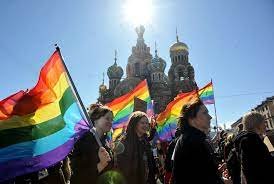Russian lawmakers have recently introduced a controversial draft bill that proposes a ban on gender-affirming surgery, marking yet another restrictive measure targeting LGBTQ+ rights. Backed by 400 out of 450 members of the State Duma, Russia’s lower house of parliament, the legislation aims to prohibit most forms of gender-affirming surgeries, with limited exceptions for treating “congenital physiological anomalies.” However, even these exceptional cases would be subject to strict regulation by government-controlled medical panels. This move has raised significant concerns among human rights activists, who argue that it constitutes a further erosion of LGBTQ+ rights in the country.
The draft bill reflects an ongoing trend of Kremlin-led actions to suppress LGBTQ+ rights in Russia. In recent years, the government has implemented a series of laws and policies that have progressively restricted the rights and freedoms of LGBTQ+ individuals. These measures include the controversial 2013 “gay propaganda” law, which effectively criminalized the promotion of non-heteronormative relationships to minors, and a 2020 constitutional amendment that enshrined the definition of marriage as strictly between a man and a woman. The current proposed ban on gender-affirming surgery fits into this broader pattern of discriminatory policies.
If the draft bill is passed into law, it would have severe implications for the transgender community in Russia. Gender-affirming surgeries, such as hormone therapy and various surgical procedures, are critical components of transgender individuals’ medical care and transitioning processes. By restricting access to these surgeries, the proposed legislation would effectively deny transgender people the ability to align their bodies with their gender identities, exacerbating their marginalization and potentially causing significant distress and harm.
Moreover, the establishment of government-controlled medical panels overseeing exceptions to the ban raises concerns about the potential for discrimination and abuse. LGBTQ+ rights advocates worry that these panels could become tools for further monitoring and controlling transgender individuals’ healthcare choices, as well as platforms for enforcing discriminatory practices. The potential for biased decision-making, lack of expertise, and infringement on personal autonomy heightens fears that the ban may further marginalize and stigmatize transgender people, denying them their fundamental rights to bodily autonomy and self-determination.
The proposed ban has drawn widespread condemnation from international human rights organizations and advocates. The United Nations and various human rights groups have expressed concerns about the potential violation of fundamental rights, including the right to health, privacy, and non-discrimination. They argue that the draft bill runs counter to international human rights standards, which recognize the importance of ensuring access to gender-affirming healthcare for transgender individuals.
The Russian government has faced international scrutiny in the past for its treatment of LGBTQ+ individuals, with critics accusing it of fostering a climate of discrimination and prejudice. The latest draft bill adds fuel to this controversy and raises questions about Russia’s commitment to upholding human rights, particularly those pertaining to sexual orientation and gender identity.
The proposed ban on gender-affirming surgery in Russia, backed by a significant majority in the State Duma, represents a troubling development in the country’s ongoing crackdown on LGBTQ+ rights. If enacted, the legislation would severely restrict transgender individuals’ access to essential medical care and infringe upon their rights to bodily autonomy and self-expression. The international community, human rights organizations, and LGBTQ+ advocates continue to voice their concerns, urging the Russian government to reconsider this regressive measure and work towards protecting the rights and dignity of all individuals, regardless of their gender identity or sexual orientation.


